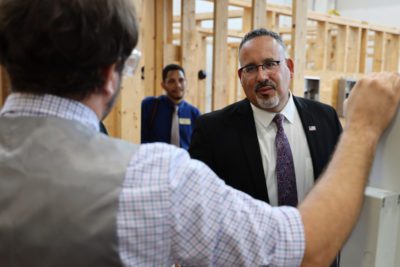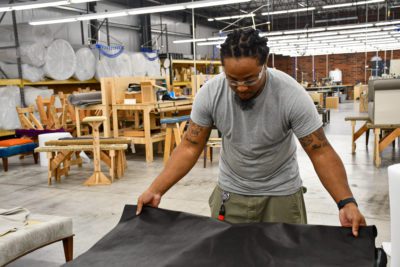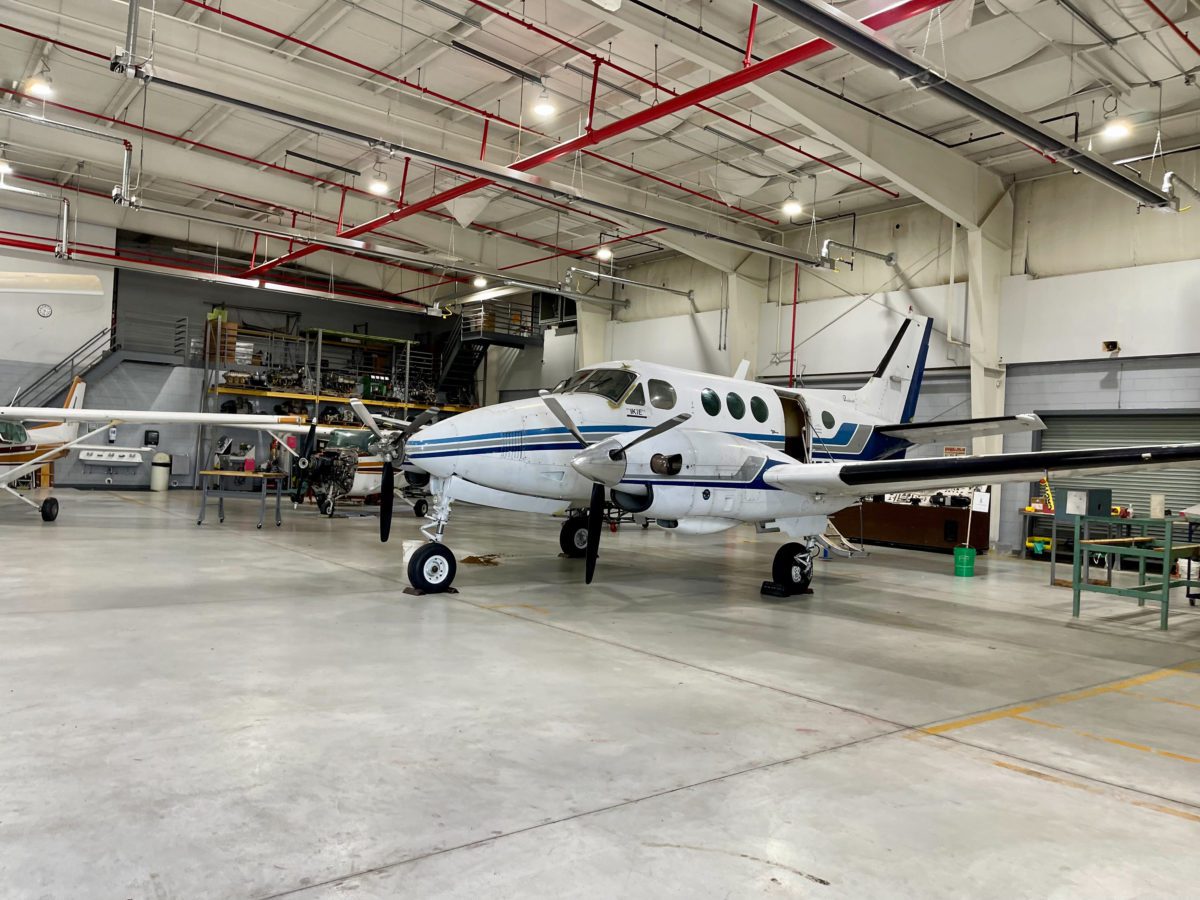
|
|
North Carolina and aviation are inextricably linked with the Wright Brothers achieving the first-ever powered air flight at Kitty Hawk in 1903. And while Kitty Hawk will always be home to the first flight, located some 300 miles west is what many consider to be the new home of aviation training.
Aviation is one of Guilford Technical Community College’s (GTCC) oldest programs. Starting first with aviation management in 1969, the college now has five aviation program pathways. From training pilots to technicians to mechanics, GTCC offers multiple opportunities for students looking to enter the aerospace industry.
“We have carefully constructed programs here that lead to very discrete jobs that are in high numbers,” Dr. Beth Pitonzo, GTCC’s senior vice president of instruction said. “One hundred percent employment. If people get through any of these [programs], they’re employable locally as well as regionally.”
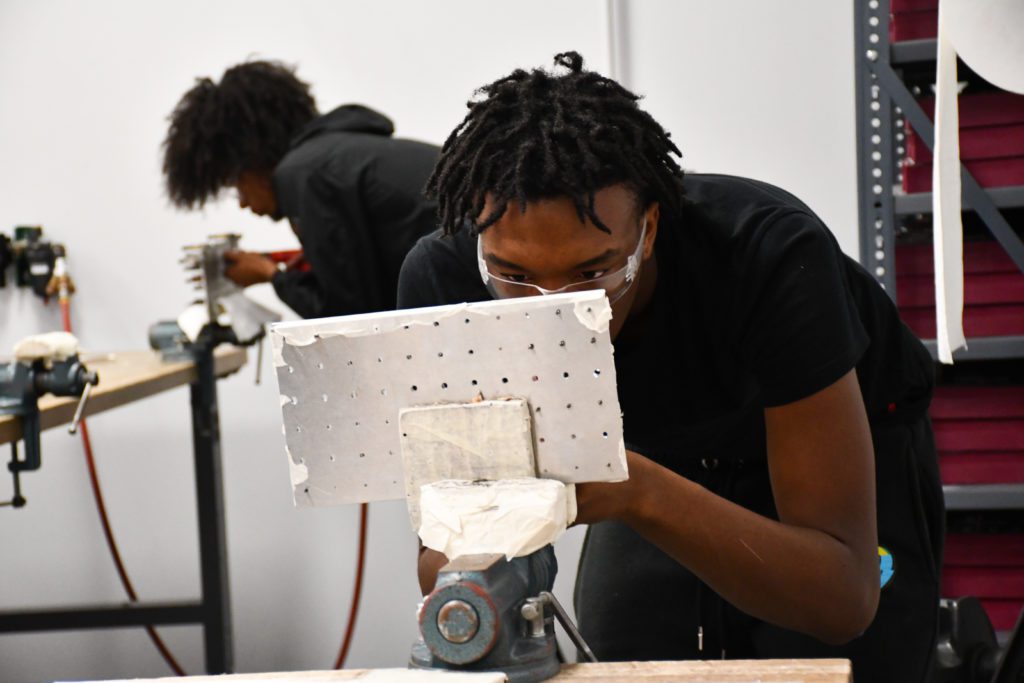
A recent economic impact study of all North Carolina community colleges found that Guilford Tech had a total annual economic impact of $542.9 million in 2019-20. Alumni impact alone totaled $438.7 million.
Aviation, specifically aviation electronics (avionics) technology, was one of five GTCC programs assessed in the impact study. In 2019-20, alumni from the avionics technology program generated an estimated $384,500 in added income to Guilford County. As for alumni lifetime earnings, the report showed a per student increase of $684,200.
GTCC’s aviation program isn’t just equipping students. It’s also helping meet the demand for more trained workers among aviation employers.
Some of those employers include HAECO (Hong Kong Aircraft Engineering Company), Honda Aircraft, and most recently Boom Supersonic.
Nick Yale, director of aviation programs at GTCC, credits the success of these partnerships to community colleges’ ability to optimize training based on the unique needs of each employer.
“We went to HAECO and said…what do we need to add to this program to give you exactly what you need,” Yale explained.
The college then added modules to an existing aviation program to meet the exact needs of HAECO.
“We believe that GTCC’s efforts to provide relevant training and education that is based on actual work requirements has been instrumental in the success of our new employees entering the workforce. The faculty diligently worked with HAECO Training staff to assure alignment with curriculum while maintaining the highest standards that exceed FAA requirements.”
John Huff, vice president of human resources at HAECO
HAECO has hired over 924 certified aviation mechanic graduates from Guilford Tech.
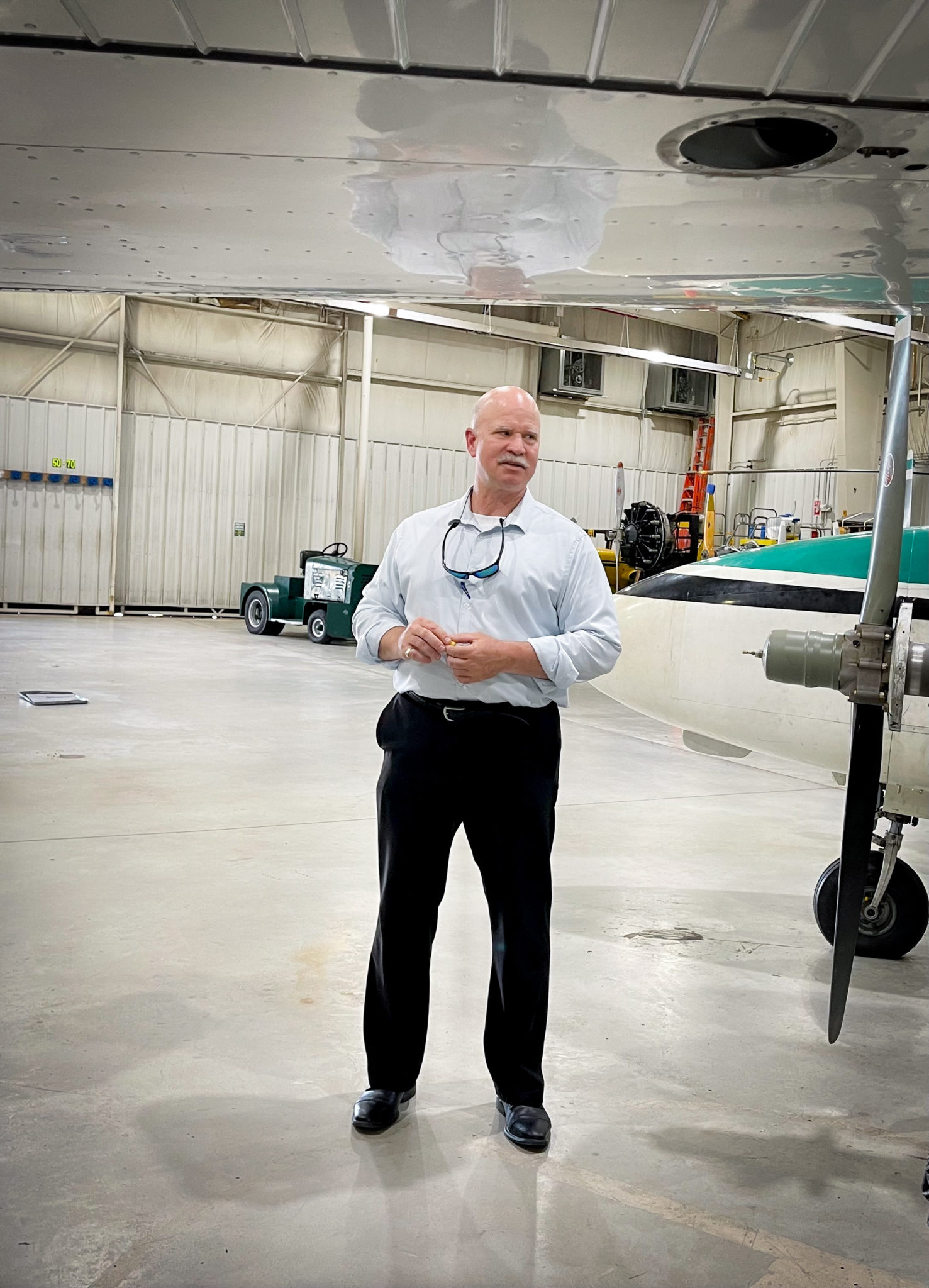
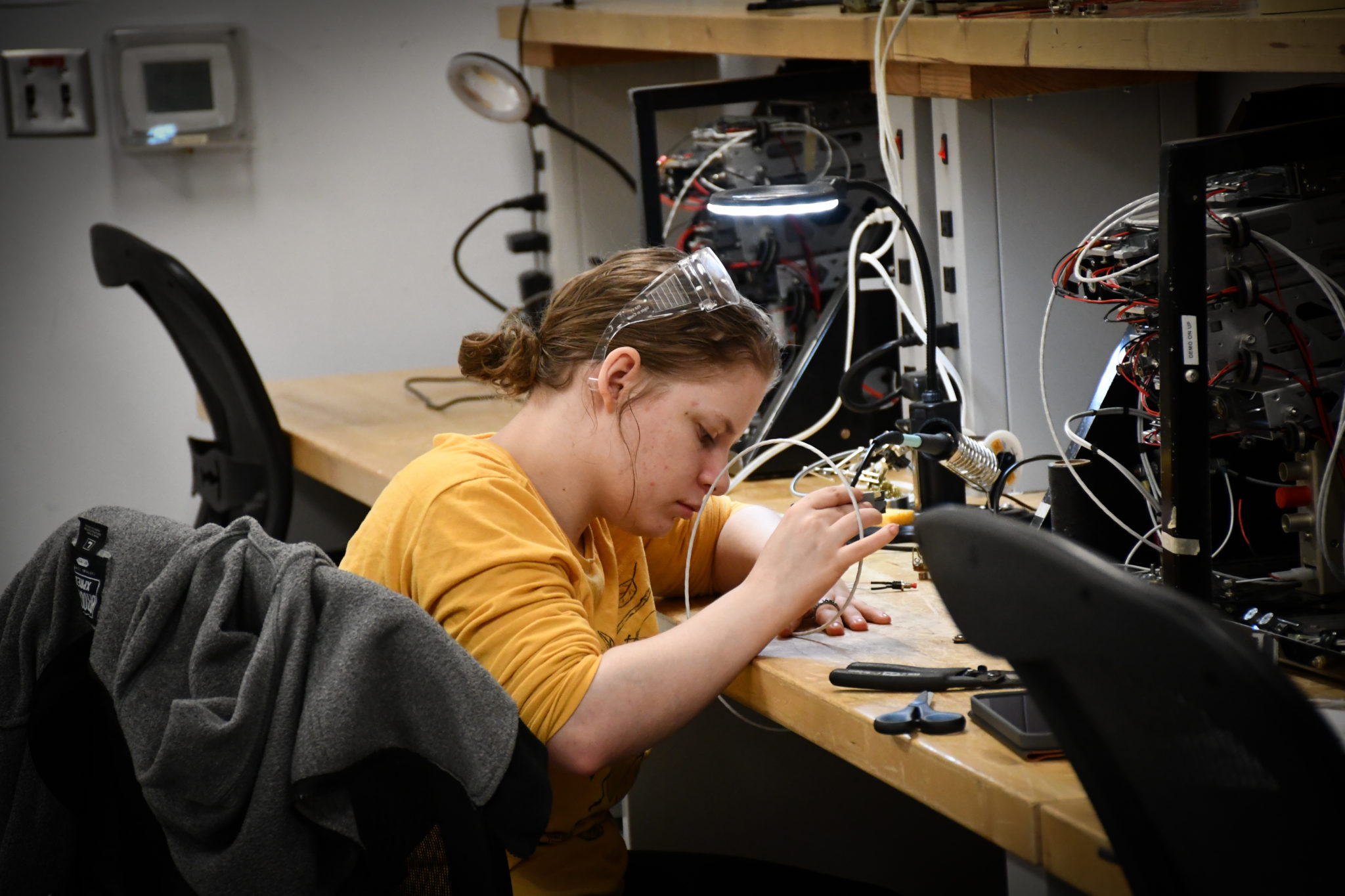
Before Boom Supersonic announced it would build its manufacturing and final assembly facility in Greensboro, Yale asked the same question to company leaders — what is it that you need?
With over 25 years of experience in the aviation industry – working for companies like Delta Airlines and FedEx – Yale has also helped companies anticipate their hiring needs.
“The team at Guilford Technical Community College has been able to anticipate many of Boom’s initial hiring and training needs.”
Chris Taylor, vice president of manufacturing at Boom Supersonic
Boom Supersonic will create more than 1,750 jobs by 2030, according to a press release from Gov. Roy Cooper’s office.
“North Carolina is ahead of many other states in their ability to support local industries with skilled workers, and we’re very proud to be building the supersonic future here.”
Chris Taylor, vice president of manufacturing at Boom Supersonic
Taking the program to new heights
Over 200 aerospace companies call North Carolina home. From 2015-2019, the state saw aerospace manufacturing grow three times the national average.
As the industry is expected to continue growing across the state, so will the aviation programs at Guilford Tech. There are currently around 400 students across all five aviation pathways. Yale said the college will need to add more students to meet employer needs.
The challenge?
“You can’t grow our program overnight,” Yale said.
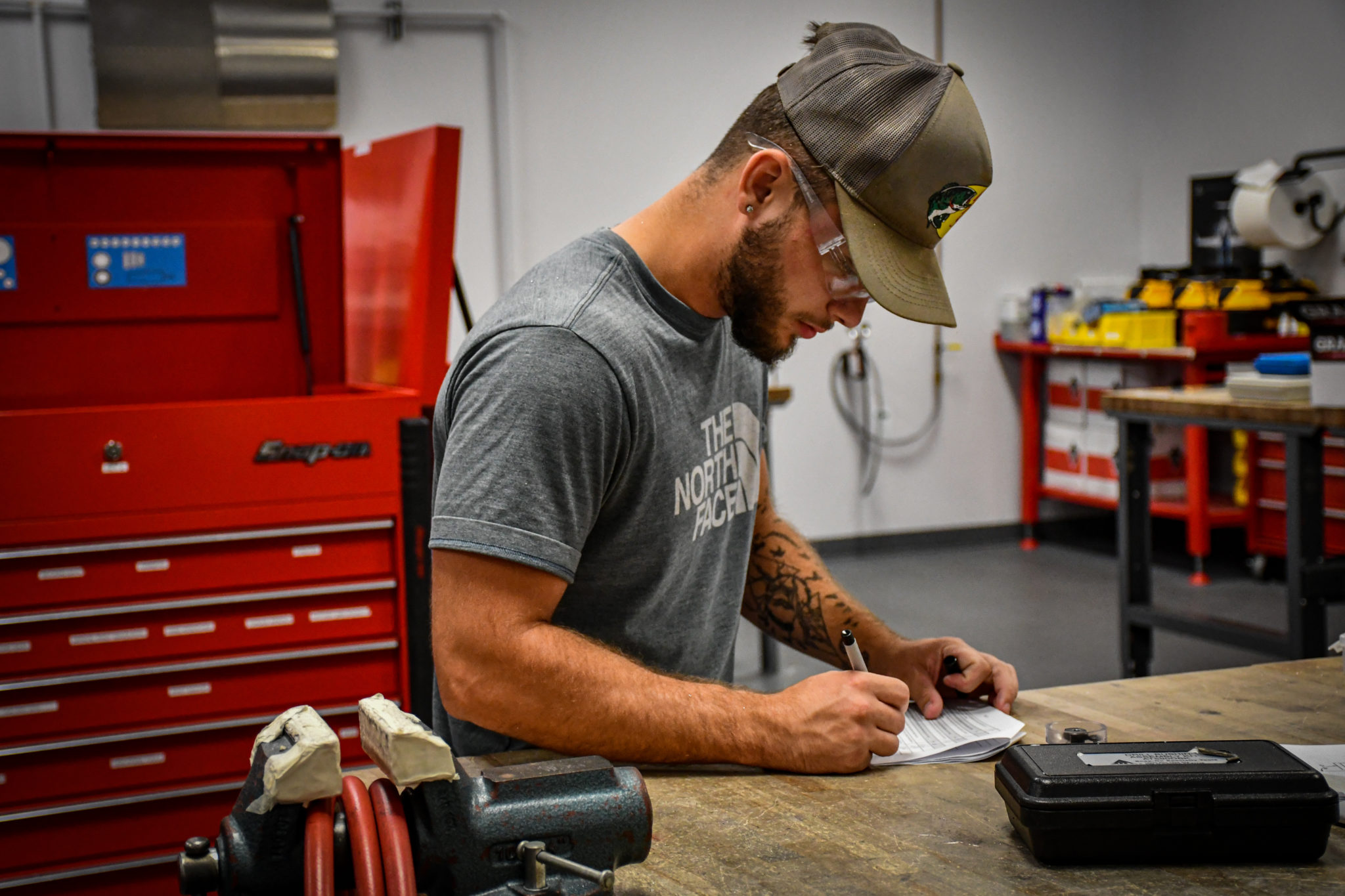
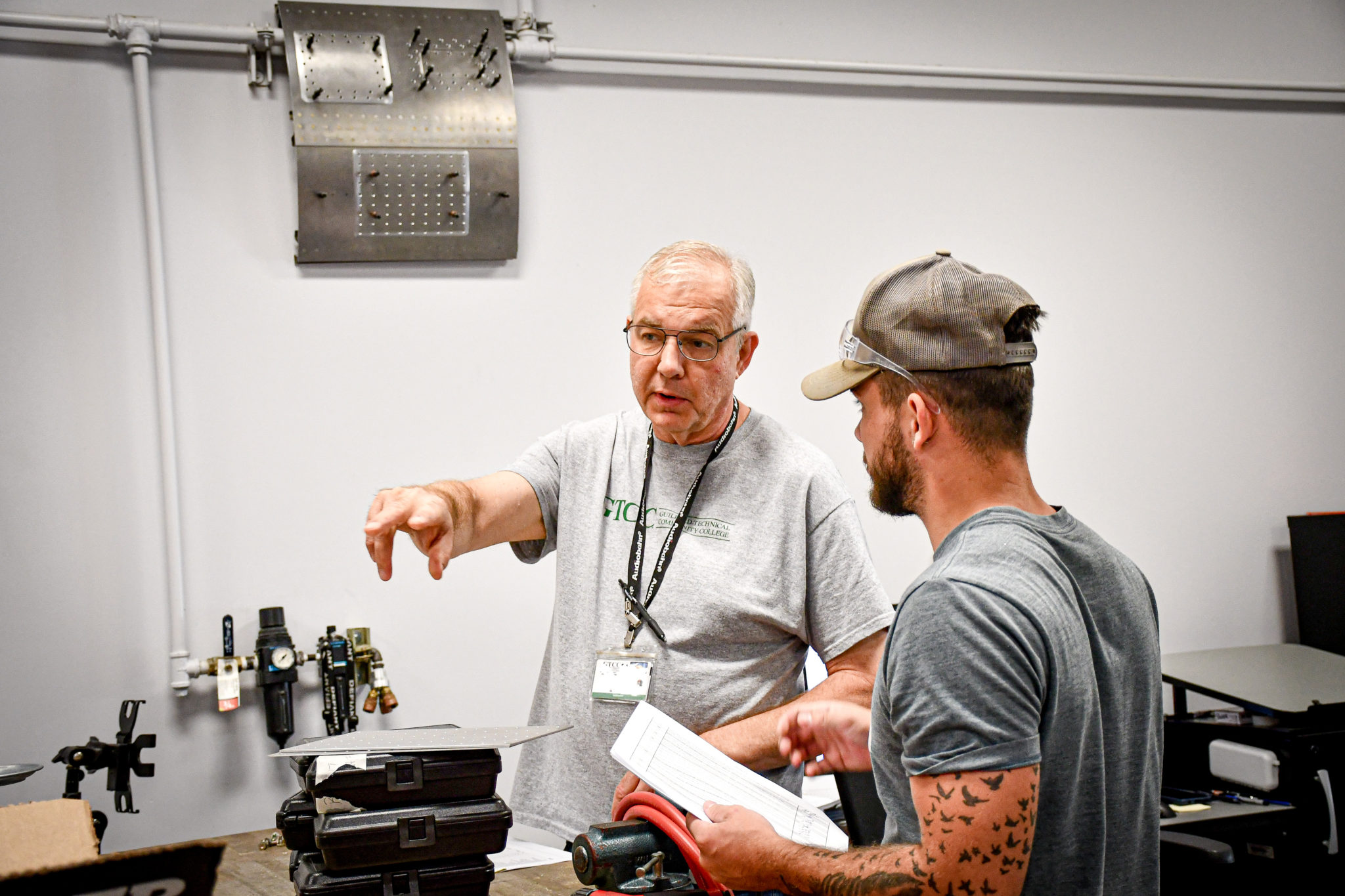
But one area with growth potential is among Guilford County’s high school student population.
Students in North Carolina who meet eligibility requirements are able to participate in Career and College Promise (CCP), a program that gives high-school-age students an opportunity to pursue college courses tuition-free. The program is designed to help students jumpstart their career or college preparation.
And that’s exactly what Xu “Jackie” Yi and Brody Sawyer are doing. Sawyer and Yi are both high school seniors enrolled in Guilford Tech’s aviation pathway through Career and College Promise.
Sawyer said he sees this as a jumpstart for his future. He has always loved airplanes and has been fascinated with flying after seeing the Wright Brothers Memorial at age 10.
Like Sawyer, Yi has always been intrigued by how things operate and believes the courses she is taking will give her a head start toward her career path.
Both Sawyer and Yi started as freshmen at the Aviation Academy at Andrews High School. During the four-year program, students take a number of aviation classes while also completing their required high school classes. As high school juniors, students can begin taking courses through Guilford Tech as part of the Career and College Promise program.
After successfully completing courses in the CCP aviation pathway, Sawyer and Yi will be able to sit for the airframe license test – something Sawyer considers a huge benefit.
“The industry is really lacking maintenance and pilots right now,” Sawyer said. “So if you get into [GTCC’s aviation] program, you’re almost guaranteed a job straight after.”
While Sawyer is still debating between aviation and the Naval Academy after high school, Yi already has a job waiting for her.
In addition to CCP courses, Yi is enrolled in a program through the Aviation Academy that partners with HAECO. Upon graduating from high school, Yi will work at HAECO as a mechanic helper while she completes her remaining aviation courses through GTCC. HAECO covers the cost of tuition and guarantees students a job after they graduate.
“The model of sponsoring a student in high school is something that can be adopted for any aviation company in the area,” said David Mayers, director of aviation at Andrews High School. “Currently we have had nine recent graduates become mechanic helpers since we have started the program in 2020.”
Partnering to move ahead
Jumpstarting careers in high school is something Yale and Pitonzo are committed to because these careers can change a person’s life trajectory.
“Some of these jobs, within five years, you’re making $120,000 a year,” Yale said.
Taylor shared a similar sentiment.
“Many industries could benefit from involvement at the high school level and communicate the opportunities they have for students who are seeking a community college education or training. There is such great pressure for students to attend a four-year university, which is not always a good fit depending on their interests. Community colleges are a great option for students looking to boost their academic career in an exciting industry like aerospace, where specific skills are necessary.”
Chris Taylor, vice president of manufacturing at Boom Supersonic
The partnerships don’t end with local high schools. Guilford Tech worked with Forsyth Technical Community College as they launched their aviation program last year.
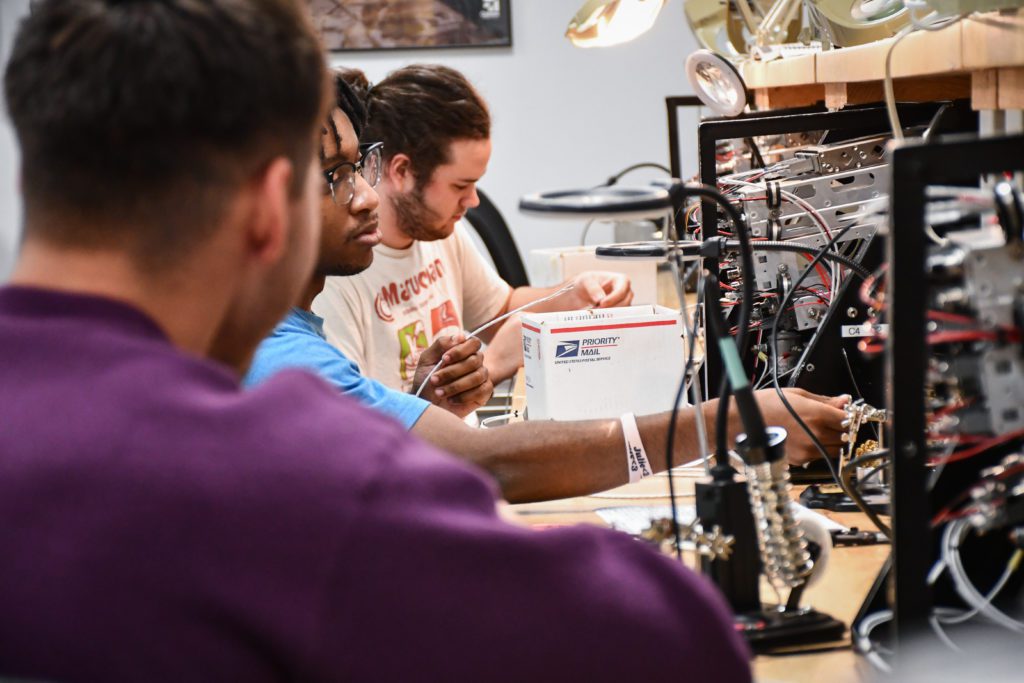
And the collaborative spirit is meaningful to employers.
“We have benefitted from Guilford Tech’s relationship with Forsyth Tech, which has given us valuable insight into additional training programs we may utilize. This has also allowed us to better understand how we can work with the local community college network to support Overture production ramp up.”
Chris Taylor, vice president of manufacturing at Boom Supersonic
As for employers looking to partner with community colleges, Taylor offers a piece of advice.
“Communicate with community colleges early and often to tap into these programs,” he said. “One of the most significant elements that make our collaboration successful is GTCC’s network of local organizations, both government and industrial. These valuable connections have provided us with insights for doing business in the Triad.”
With continued growth expected in the aerospace industry, leaders at Guilford Tech are committed to equipping students and meeting employer needs.
“As the aviation maintenance applicant pool continues to shrink, we will depend more and more on programs through schools like GTCC,” said John Huff, vice president of human resources at HAECO.
And for aerospace employers looking to move to the Tar Heel State, Yale is ready with his question.
“What is it that you need?”



